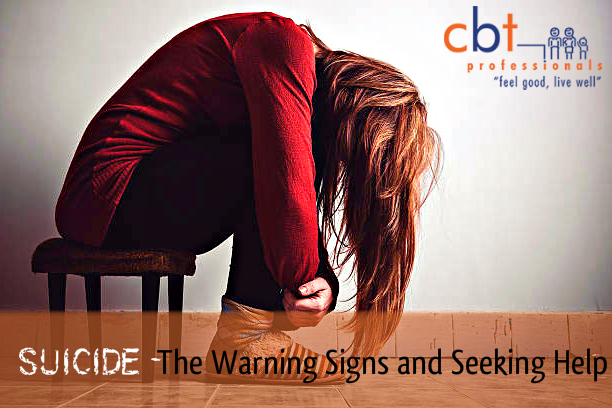Suicide – The Warning Signs and Seeking Help
Many individuals and families are affected by suicide, with 2, 132 deaths by suicide in Australia alone in 2009 (ABS , 2011). Suicidal thoughts can be a common response to a crisis, particularly when people feel trapped and unable to see a way out.
Being given the opportunity to discuss these thoughts can be the key to exploring alternatives to suicide and keeping safe. This article outlines the risk factors and warning signs that someone may be about to attempt suicide and where help can be sought.
Risk Factors
The following factors have been associated with increased risk that someone may attempt suicide:
|
Risk Factors |
||
|
Individual |
Social |
Contextual |
| Previous suicidal behaviour | Abuse/physical violence | Unemployment |
| Male gender | Isolation | Financial problems |
| Mental health concerns | Family relationship conflict | Neighbourhood issues – crime/violence |
| Chronic health concerns/pain | Separation | Poverty |
| Immobility | Bereavement | Poor academic achievement |
| Substance abuse | Peer relationship problems/rejection | Discrimination |
| Low self-esteem | Imprisonment | Homelessness |
| Sense of lack of control over problems | Difficulty with communication skills | Lack of support services |
| Lack of meaning in life | Family history of suicide/mental health concerns | Geographical isolation |
| Lack of coping skills effective for circumstances | ||
| Sense of hopelessness | ||
| Feelings of guilt/shame | ||
Adapted from LIFE www.livingisforeveryone.com.au cited in APS Suicide Prevention Professional Development Training
Warning Signs for Suicide Attempt:
- Talking about suicide
- Having a plan
- Self-harming
- Previous history of suicide attempts
- Finalising affairs (e.g., organising a will, giving away pets)
- Hopelessness about the future
- Persistent and unexplained crying
- Feeling trapped and unable to solve problems
- Withdrawal from friends/family
- Lack of interest in usual activities
- Giving away items with significant personal meaning
- Increased substance use and risk taking behaviour
- Sudden change in demeanour from depressed to happy (person may be feeling relieved that it will soon all be over).
What to Say to Someone Whom you Suspect may be Suicidal:
1. Open conversation with “are you OK?”
2. Listen carefully without judging
3. Express your observations and concerns
4. Directly ask “have you had thoughts of ending your life?” – this won’t put the idea in their head but rather help them to feel safe that they can talk about their thoughts and that it is OK to talk about suicide. The person may even feel a sense of relief of being able to share with someone how they are feeling.
5. If the person reveals that they have had thoughts of suicide, support the person to seek professional help – provide numbers, offer to go with them to the doctor or hospital, importantly stay with them until support has been sought.
When to Seek Help
- If you or someone you know has suicidal behaviours, self-harm or in a suicidal crisis seek help. Even if you think these are ‘just fleeting thoughts’ it is recommended to seek help.
- In an immediate emergency where safety of yourself or someone you know cannot be assured call 000.
- If it is possible to do so safely, go to the nearest hospital emergency department for an assessment.
- Other options may include phoning a helpline such as Lifeline or the Suicide Call Back Service (see below for numbers). For Gold Coast residents, phoning The Gold Coast Mental Health Service Acute Care Team (ACT) on (07) 5667 2000.
- Speak to your GP and obtain a referral to a psychologist for therapy.
- Talk to a trusted person – family, friend or colleague.
Useful Resources
Police/Fire/Ambulance – 000
Lifeline: 13 11 14 (toll free)
Suicide Call Back Service: 1300 659 467 W: www.suicidecallbackservice.org.au
Mensline Australia: 1300 789 978 (local call cost, excluding mobiles)
Kids Helpline: 1800 551 800 (toll free)
The Gold Coast Mental Health Service Acute Care Team (ACT): (07) 56672000 (24 hour service)
Just Ask: Lifeline’s mental health information service: 1300 131 114
Crisis Counselling Service: 1300 363 622 (Queensland)
The Living is for Everyone (LIFE) website: www.livingisforeveryone.com.au
How a Psychologist can Help You:
Psychologists generally work with people contemplating suicide by assisting people to respond to their crisis through problem-solving and exploring alternatives to suicide, ensuring safety through mobilising any supports required, and exploring reasons for living and what matters to the person.
Sources:
APS eLearning course Suicide Prevention Professional Development Training (2013).
Zettle, R. (2007). ACT for Depression: A Clinician’s Guide to Using Acceptance and Commitment Therapy. Oakland, CA. New Harbinger Publications, Inc.
Blog written by CBT Professionals Clinical Psychologist on the Gold Coast, Dr Tamera Wiggins. CBT Professionals are a team of clinical psychologists on the Gold Coast with offices in Coomera and Nerang. Gold Coast CBT psychologists offer services to adults, children, and couples.
THREE CONVENIENT LOCATIONS
MOUNT GRAVATT
Mt Gravatt Medical PrecinctSE 105, 1808 Logan Rd
Upper Mount Gravatt QLD 4122



1 Comment
Hello. Many thanks 🙂 Great article.